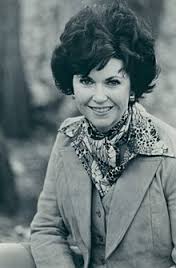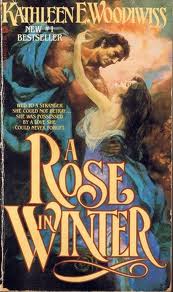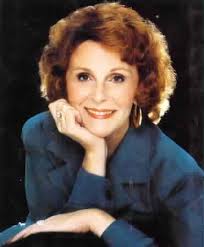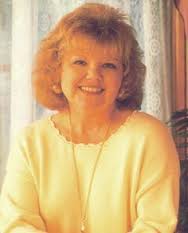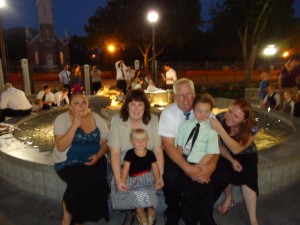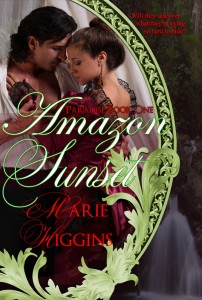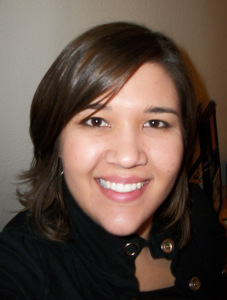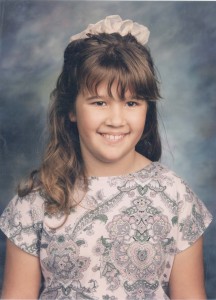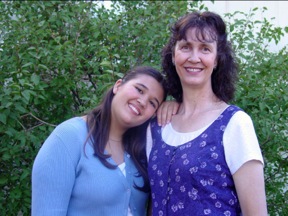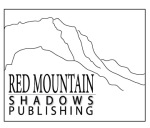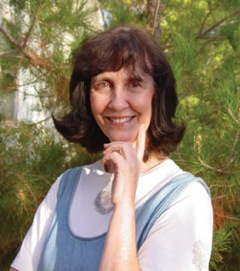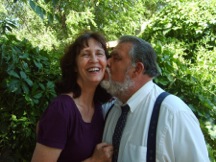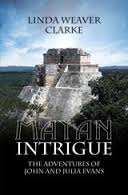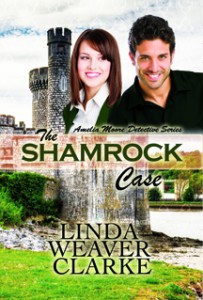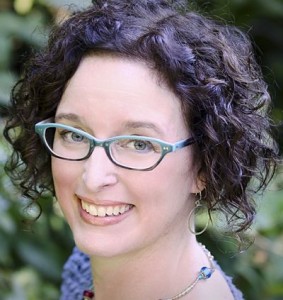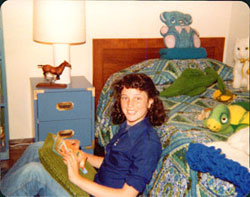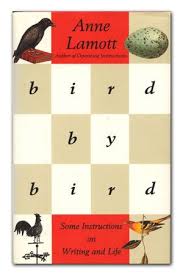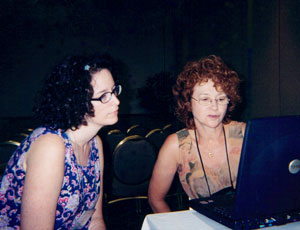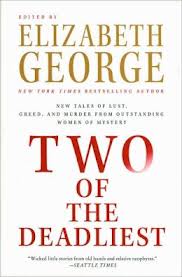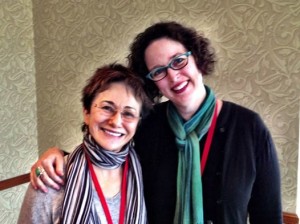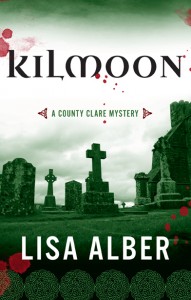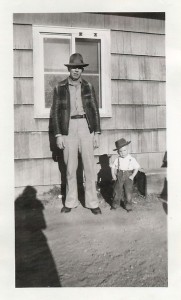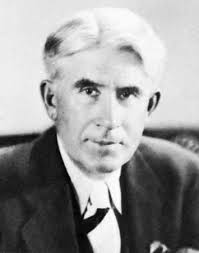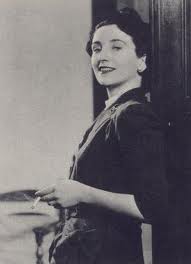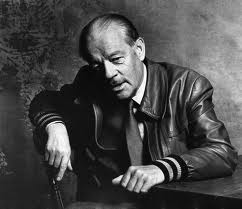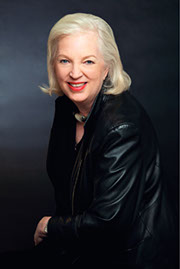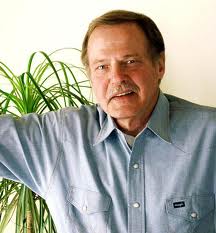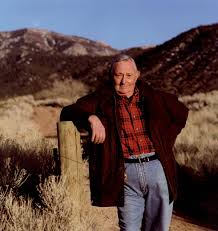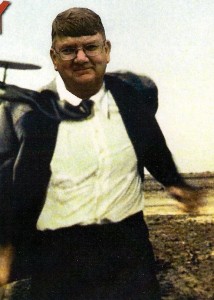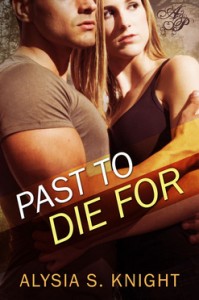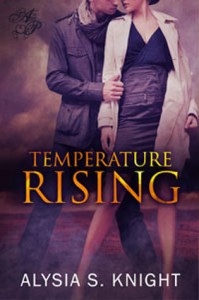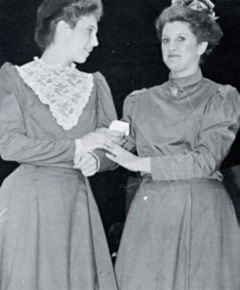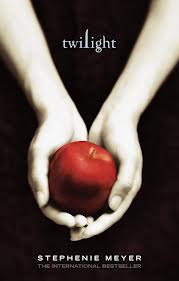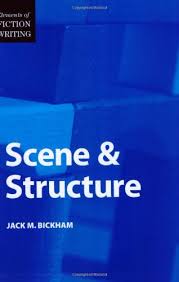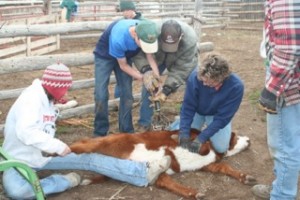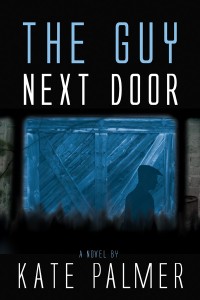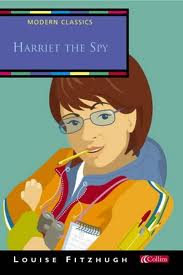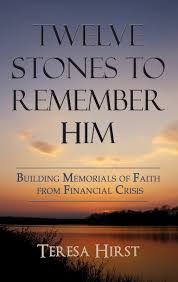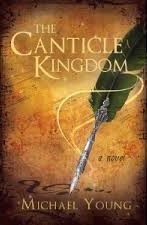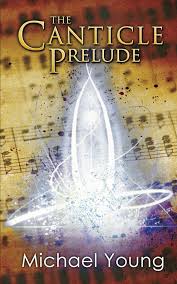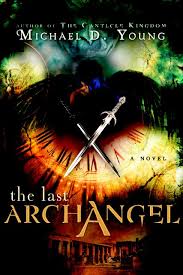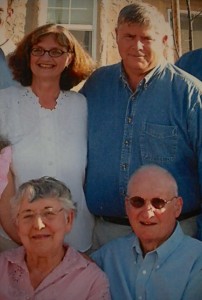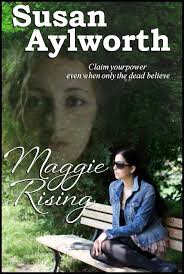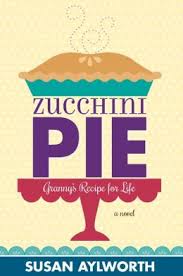If you’re into romance, Marie Higgins is your author. She has a clean romance for everyone! If you like heroic rogues, she has a series for you. Victorian Romance, Regency Romance? Covered. She even has Time Travel Romance! But enough of all her sub genres. Let’s get to the heart of Marie! (I know, don’t groan. That was a bad pun.)
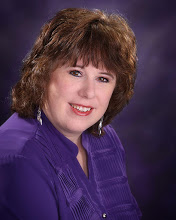 ME: Where did you grow up, and who or what were your earliest influences in terms of your writing?
ME: Where did you grow up, and who or what were your earliest influences in terms of your writing?
MARIE: I grew up between Salt Lake City and Clearfield, Utah. The reason I say ‘between’ is because I was born in SLC, then we moved to Clearfield, and then moved back to SLC, then finally came to plant our feet in Clearfield.
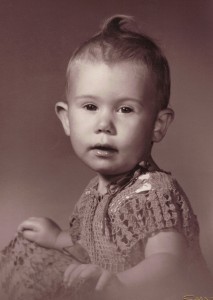 (Cute little Marie at 18 months)
(Cute little Marie at 18 months)
As for my earliest influences… I really don’t know who influenced me in terms of my writing. I remember as a child in school that I hated to read the books the English teachers made us read for a grade. They were boring! Yet somewhere in my junior and senior year in high school, I started playing with poetry. (Go figure!) I created poems…yet the poems were always in story format.
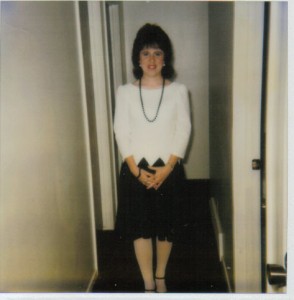 (And here she is as a senior in high school)
(And here she is as a senior in high school)
It wasn’t until my senior year when I started writing skits for my community and church. These skits were performed and judged and I received awards of “Funniest” and “Best Written”. This was what gave me the drive to write after I was married and my daughters were in grade school. I haven’t stopped yet. So maybe my influences were those books I had to read in school that were boring. They influenced me to write fun stories with sweet romance, action and adventure, and suspense.
(A little reverse psychology, eh?)
ME: Can you share the gist of the first story you ever remember writing?
MARIE: Oh dear…you’re going to make me strain my brain, aren’t you? (You bet! I dig deep. :D)
I remember having a dream of a ballerina (I don’t know why because I was never really fascinated with ballet), but I remember there was some kind of mystery to the plot. I think the hero was a detective or cop. I had started writing the story to the way my dream had shown me. I don’t think I finished the story, but soon after I started writing, my muse kicked into action and gave me ideas for other stories. The rest, they say, is history…
(That’s all it usually takes, all you writers in embryo–a good dream…that you can remember, anyway.)
ME: Which romance authors have influenced you the most and how?
MARIE: The very first romance I read was titled A Rose in Winter, written by Kathleen E Woodiwiss. I was amazed that this author could get me into the story so quickly and make me feel like I was one of the characters. And the plots….woo-wee, what a ride!
(Woo-wee, indeed!)
From there, I read Judith McNaught, LaVryle Spencer, Jude Deveraux, and Johanna Lindsey.
(LaVyrle Spencer)
(Jude Deveraux)
(Johanna Lindsey)
After sweeping through them at record speed, I realized there were other romances out there written by Christian authors. I was very happy to start reading more.
The two authors that influenced my writing the most at this time were Anita Stansfield and Rachel Ann Nunes. Anita wrote some very emotional stories, while I absolutely loved Rachel’s suspense! (Amen!)
ME: I know romance sells best in our country (and perhaps worldwide, for all I know), but besides the money, why do you choose romance over other genres?
MARIE: Because I enjoy falling in love—over and over again. And I enjoy my readers telling me how much they enjoyed falling in love—over and over again, too.
(Ah, so you’re a true romance novelist. Money has nothing to do with it.)
ME: You’ve written over 30 novels. Has the content and style changed over the years, and if so, how? Please compare your first novel to your latest. Also, are covers changing in any way?
MARIE: Yes, the style of romance writing has changed over the years. Back when I first started writing romance, my writing/critique groups drilled into me the need for descriptions…TONS of description. If you’ve never read a Kathleen E Woodiwiss story, she is the queen of description. She could describe one countryside in three pages.
But now…it’s short, sweet, and to the point. Flowery words and phrases are not that popular any longer, and although I still wish I could write that way, now it’s all right if I don’t. As long you can pull the readers into your story and never let them go until the very end, you’re doing great.
Another thing that has changed is pages per chapter. When I first started writing, our chapters had to be at least 20 pages long. Now ten pages for a chapter are appropriate.
(Personally, I think this is because we live in a “fast food”, ADD-type world. Too many interruptions and too often. It’s definitely had an effect on fiction of all genres.)
It’s funny you’d ask me to compare my first to my latest. They are nothing alike. With each story I write, the plots get more complicated, and there is more suspense.
As for covers, I think they are changing. With the first books that I had read (see A Rose in Winter above), some of the book covers looked like paintings or drawings. Some covers just had one or two objects. Now covers have models in period costumes. Personally, I like the covers with models dressed to look like my characters. Of course with today’s technology, it’s easier to find pictures for book covers. There are tons of websites for this now.
(And, by the way, if you want to learn more about making your own covers, among many other things, you should come to the Indie Author Hub Writing & Publishing Conference this Saturday, June 7th, in Provo, Utah at the Courtyard Marriott! I believe Marie is going to be there, along with other fabulous authors like Rachel Ann Nunes, Heather Moore, Liz Adair, and Julie Wright. And there’s a mass book signing at the end.)
ME: You’re what I would call a fast writer. You’ve said it takes you about 6 weeks to produce an 80,000-word novel. Is that before publication or including the publishing process? How do you account for your speed?
MARIE: I wish six weeks included the publication process. The six weeks is an average of what it takes me to write a story. If there is stress in my life, the time frame gets stretched. Six weeks is from beginning chapter one to writing THE END.
Once I’ve finished my story, I let it sit a few days, maybe a week while my mind clears. Then I’ll get started on second-round edits. This is reading back through the story looking for mistakes and plot holes.
Once this is completed, I send the story to some of my critique partners, between 3 and 5. They go through and check for errors and plot holes. When they are finished, I add in their suggestions and read through it one more time before sending the story to 3 beta readers. After they give me their feedback, then I go through my story one last time to add in their suggestions and any others I might find.
FINALLY it’s time to publish. This process could take a month, or if I’m lucky, only a couple of weeks.
(Thanks for reviewing the whole process!)
In some of my stories, my characters are very excited to tell me their stories and they can’t stop talking in my head. That’s when my fingers fly across the keyboard so fast, and my fingers can’t keep up with my muse. That’s where the speed comes in.
Another thing I do that’s different than other writers, is that after I’ve written a chapter, I only read through it once before moving to the next chapter. I don’t take the time to go over each sentence, and each paragraph to make them perfect. I wait to do that during my second-edit process.
ME: What turned you from traditional publishing to indie publishing? And how much more are you earning per month now that you take in 70% of the royalties? Do you miss anything about traditional publishing?
MARIE: I don’t miss anything about the traditional publishing.
What turned me away was the small amount of royalties we authors get because a portion goes to the cover artist, another portion goes to the editor, and another portion goes to the marketing director, and another portion goes to the publisher themselves. Then…authors get the tiny amount that’s left.
In some publishing companies, they make book covers without the author’s approval, which I think is very wrong. Publishers have a very long release date scheduled for books (some are more than a year).
And my biggest beef with traditional publishers is that no author really knows if they are being cheated. Believe me, I’ve had a few publishers who cheat their authors!
What I love about indie publishing:
- Finding my own editors
- Creating my own book covers
- Choosing my own sale price
- Seeing my sales every day
- Writing what I want to write instead of what the publisher thinks I should write.
- MORE FREEDOM!
ME: How does your family (meaning your husband and children) feel about you writing all of this romance?
MARIE: When I first started writing nearly 20 years ago (gads, has it really been that long?), my family didn’t like all the time I spent in the computer room writing my stories. It took quite a while, several years, in fact, before they realized that I would rather create a story than watch TV. All my daughters remember from their childhood is that their mom wrote stories and told everyone about them. Hahaha
Anyway, now that my books are published and selling, my husband is very proud of me and encourages me to write more. (Go figure!) My daughters are out on their own now, and they have told me they are proud of me, too…because when people discover their mother is Marie Higgins, it shocks them. :D
(I’ll bet!)
ME: Tell us about your latest release, and what’s up next?
MARIE: My latest release is titled AMAZON SUNSET. The setting of this Victorian romance is in the Amazon Rainforest. I had so much fun researching this and trying to figure out what things could go wrong in the jungle.
Here is the blurb:
Katrina Landon’s life is about to change. The wealthy father she has never known wants to meet her, but she has to travel from the slums of Boston through the Amazon rainforest to his plantation. As if that’s not bad enough, her guide is the handsome, self-assured, too confident for his own good, Mr. Knightly, who immediately stirs her temper.
Felix Knightly isn’t looking forward to escorting a spoiled rich girl through the jungle no matter how much her father pays. Yet when he meets her, he finds Katrina’s distracting innocence and charming demeanor unsettling. She makes it nearly impossible to concentrate on his job—a problem he’s never had around women. He’d rather fight off the fire ants, howler monkeys, and crocodiles than risk losing his heart to her, since he’s never met an honest wealthy woman.
As they delve deeper into the shadows of the rainforest, they discover they weren’t just wrong about each other, they were wrong about the dangers of the jungle. Someone wants them dead and they have to find out who and why before it’s too late.
(Yummy…sounds steamy and suspenseful. If you’re interested, here are the links for the Kindle version and the paperback version.)
The book I’m working on next is #2 in this series. This story will be about one of Felix’s sisters. Her story is titled Amazon by Moonlight, and will also take place in Brazil in the jungle. So much fun!!
ME: Finally, please describe your writing space in the voice of one of your favorite “bad boys.” (And I must have a picture of said space.)
MARIE: My bad boy, huh? Well…I’ll give it a try… Okay Felix Knightly, take it away!
“Bad boy?
Do you realize how long it’s been since I was called a bad boy? The last time anyone referred to Felix Knightly as a bad boy, I was a lad wearing breeches, and I got caught slipping a toad into my sister’s bed. Needless to say, my parents punished me and I never did it again. That being said, I shall try to describe Marie Higgins’ office space as nicely as I can (because believe me, at one point I might not be able to hold back my disgust).
As I stand at the doorway of the kitchen and look into this small room, the desk is to the right of me, and beyond that is the door leading into her bed chamber. On the left side of me is the door leading to the bath chamber which has an indoor latrine. Very interesting concept, I might add. I wish they had thought of it in my era… This is a very old house and over the years rooms have been added on, but nevertheless, the space used is really quite remarkable with a closet and drawers built right into the wall.
The window nearby the closet is always open, and welcomes in the sunlight. Pictures hang on every wall, three depicting old fashioned hats and white, wicker furniture. The other wall has a glorious picture of Christ which brings serenity while gazing upon it. The third wall has a picture of a pirate ship. My personal favorite. Near the desk (which I’ll describe momentarily), stands a bookcase full of Marie Higgins’ favorite books from over the years. Lining the top of the book case are pictures of her family.
Now I’ll describe her desk, and try my hardest to be polite. Never in my life have I seen such a clutter! How could anyone be organized with such a mess? Forgive me, but, I cannot fathom how she’s able to write with so much distracting her from her stories. On the top of the desk she has a lilac scented candle that she lights quite frequently. She has some awards that were presented to her as well. One is a service award given to her from the Romance Writers of America Chapter in 2008, and another plaque was given to her when she was President of said chapter from 2006-2007. Another plaque—that I personally like the best—reads: “Grandchildren complete the circle of Love”. Papers, phone books, camera, lotion, calculator and other miscellaneous items also complete the disorder.
Regardless of this mess, Marie Higgins finds this environment comfortable and this is where she spends a lot of her time away from her full-time day job. Although I do not agree with such a mess to work around, she seems to do just fine with it, for which I’m grateful or else my story would not have been written and I would have never met the lovely Katrina Landon.
So Marie Higgins…I thank you.
Sincerely, your hero, Felix Knightly”
(Delightful! And here are the pictures:)
(And from the other direction)
Marie has a blog full of details about her books and writing. You can also watch a trailer there depicting her different series and books. And all of her books are available on Amazon.
For those of you familiar with my son Jason, diagnosed with an autistic spectrum disorder since age six, I’m excited to announce next Wednesday’s writer, Tracy Winegar, historical fiction author of KEEPING KELLER about a boy with autism. Be sure and check back next week!
Originally posted 2014-06-04 06:00:10.

